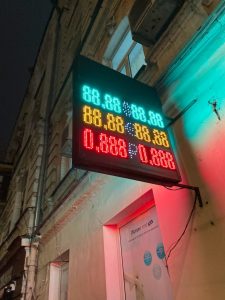Forex spread is the difference between the bid price and the ask price of a currency pair. Bid price refers to the price at which a trader can sell a currency pair, while ask price refers to the price at which a trader can buy a currency pair. The difference between these two prices is known as the spread. In simpler terms, the forex spread is the cost of trading forex.
Spread is an important concept in forex trading as it has a significant impact on a trader’s profitability. It is important to understand how the spread works and how it can affect your trading strategy.
Factors that Affect Forex Spread
The forex spread is affected by a number of factors, including:
1. Market volatility: The volatility of the market plays a major role in determining the spread. During periods of high volatility, the spread widens to reflect the increased risk of trading.
2. Liquidity: Liquidity refers to the ease with which a particular currency pair can be bought or sold in the market. Currency pairs that are more liquid tend to have lower spreads, while currency pairs that are less liquid tend to have higher spreads.
3. Trading volume: The trading volume of a currency pair also affects the spread. Higher trading volumes tend to result in lower spreads, while lower trading volumes tend to result in higher spreads.
Types of Forex Spreads
There are two types of forex spreads: fixed spreads and variable spreads.
1. Fixed spreads: A fixed spread is a set amount that remains constant irrespective of market conditions. Fixed spreads are generally higher than variable spreads and are offered by market makers.
2. Variable spreads: A variable spread fluctuates based on market conditions. During periods of high volatility, the spread widens to reflect the increased risk of trading. Variable spreads are generally lower than fixed spreads and are offered by ECN brokers.
Advantages of Low Spreads
Low spreads offer a number of advantages to forex traders, including:
1. Lower trading costs: Low spreads result in lower trading costs, which can significantly increase a trader’s profitability.
2. Faster execution: Low spreads generally result in faster execution of trades, which is important for traders who use short-term trading strategies.
3. Better trading conditions: Low spreads provide better trading conditions as they allow traders to enter and exit trades at more favorable prices.
Disadvantages of High Spreads
High spreads can have a number of disadvantages for forex traders, including:
1. Higher trading costs: High spreads result in higher trading costs, which can significantly reduce a trader’s profitability.
2. Slower execution: High spreads generally result in slower execution of trades, which can be a disadvantage for traders who use short-term trading strategies.
3. Poor trading conditions: High spreads can result in poor trading conditions as they make it difficult for traders to enter and exit trades at favorable prices.
Conclusion
Forex spread is an important concept in forex trading as it has a significant impact on a trader’s profitability. It is important to understand how the spread works and how it can affect your trading strategy. Low spreads offer a number of advantages to forex traders, including lower trading costs, faster execution, and better trading conditions. High spreads can have a number of disadvantages for forex traders, including higher trading costs, slower execution, and poor trading conditions.





